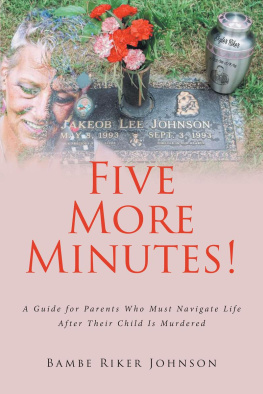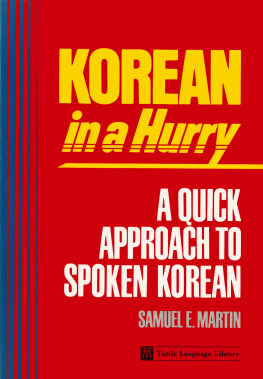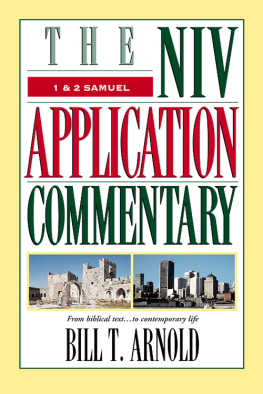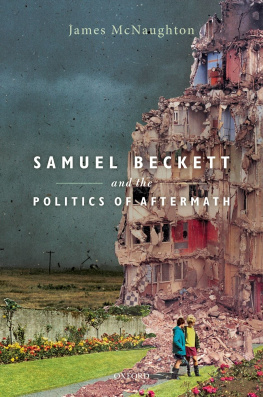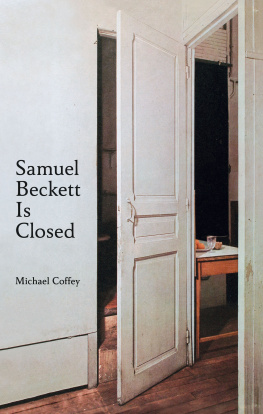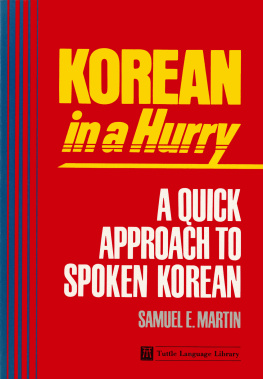Martin Riker - Samuel Johnsons Eternal Return
Here you can read online Martin Riker - Samuel Johnsons Eternal Return full text of the book (entire story) in english for free. Download pdf and epub, get meaning, cover and reviews about this ebook. year: 2018, publisher: Coffee House Press, genre: Religion. Description of the work, (preface) as well as reviews are available. Best literature library LitArk.com created for fans of good reading and offers a wide selection of genres:
Romance novel
Science fiction
Adventure
Detective
Science
History
Home and family
Prose
Art
Politics
Computer
Non-fiction
Religion
Business
Children
Humor
Choose a favorite category and find really read worthwhile books. Enjoy immersion in the world of imagination, feel the emotions of the characters or learn something new for yourself, make an fascinating discovery.

- Book:Samuel Johnsons Eternal Return
- Author:
- Publisher:Coffee House Press
- Genre:
- Year:2018
- Rating:3 / 5
- Favourites:Add to favourites
- Your mark:
- 60
- 1
- 2
- 3
- 4
- 5
Samuel Johnsons Eternal Return: summary, description and annotation
We offer to read an annotation, description, summary or preface (depends on what the author of the book "Samuel Johnsons Eternal Return" wrote himself). If you haven't found the necessary information about the book — write in the comments, we will try to find it.
Samuel Johnsons Eternal Return — read online for free the complete book (whole text) full work
Below is the text of the book, divided by pages. System saving the place of the last page read, allows you to conveniently read the book "Samuel Johnsons Eternal Return" online for free, without having to search again every time where you left off. Put a bookmark, and you can go to the page where you finished reading at any time.
Font size:
Interval:
Bookmark:
Table of Contents
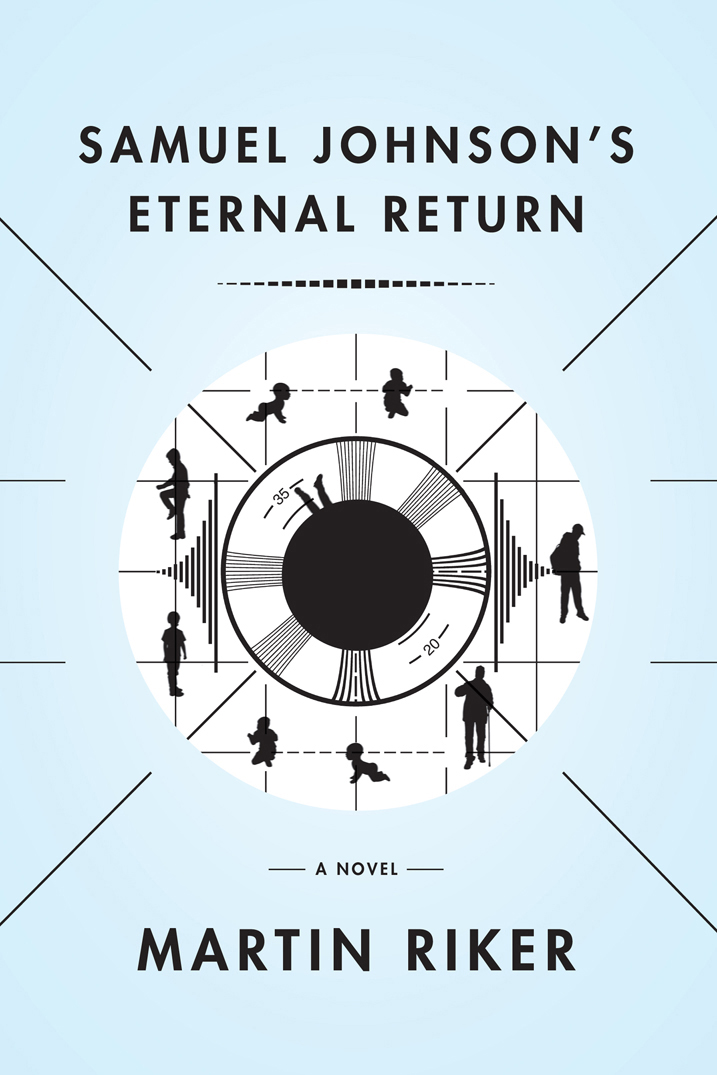


Copyright 2018 by Martin Riker
Cover design by Kyle G. Hunter
TV test pattern image on cover Donald Sawvel/Shutterstock.com
Silhouette images on cover iStock.com/majvecka
Book design by Rachel Holscher
This is a work of fiction. Names, characters, places, and incidents are either the products of the authors imagination or used in a fictitious manner. Any resemblance to actual persons, living or dead, or actual events is purely coincidental.
Coffee House Press books are available to the trade through our primary distributor, Consortium Book Sales & Distribution, .
Coffee House Press is a nonprofit literary publishing house. Support from private foundations, corporate giving programs, government programs, and generous individuals helps make the publication of our books possible. We gratefully acknowledge their support in detail in the back of this book.
LIBRARY OF CONGRESS CATALOGING-IN-PUBLICATION DATA
Names: Riker, Martin, 1973author.
Title: Samuel Johnsons eternal return: a novel / Martin Riker.
Description: Minneapolis: Coffee House Press, 2018.
Identifiers: LCCN 2018004534 | ISBN 9781566895361 (eBook)
Subjects: LCSH: Future lifeFiction. | GSAFD: Allegories.
Classification: LCC PS3618.I532 S26 2018 | DDC 813/.6dc23
LC record available at https://lccn.loc.gov/2018004534
25 24 23 22 21 20 19 18 1 2 3 4 5 6 7 8
for my wife and son
Contents

The Susquehanna is a pleasant avuncular river that winds down through Pennsylvania toward the Chesapeake, past airy forest and farmland, and these days, of course, past those endless suburban expanses. But if you drive north along the edge of it, under Harrisburgs small-city skyline, then purple mountains sliced away at the ends by the highway administration, past the last Amish fruit stand and tiny beleaguered college town, you will eventually arrive at what is left of William Penns once-illustrious woods: a sylvan paradise, empty of humans, thus of human concerns. Continue on, along a narrowing road beneath a sky of leaves and branches, and soon you begin to imagine, or half imagine, that this place, these woods, are everything that exists in this world. Whatever youd meant to accomplish, whoever youd hoped to become, all youd previously called reality seems suddenly a distant memory... And as the last thought of human society extinguishes itself, as your last worldly expectation slips away, if at that point you turn right and continue on for about twenty more miles, you will come to the town where I was born, called Unityville.
It is an idealistic name, Unityville, and well earned, in my opinion. There is great, near-total unity in Unityville. There are also only about thirty people, all of them religious zealots, or rather there were thirty at the time when my parents first moved there, that time being very long ago now. Today the number is probably closer to forty-five.
My parents, who were also religious zealots, arrived in the town eight months pregnant, having lived full lives in the world of society and come to see that world as nonsensical if not pernicious, and certainly no place to raise a son. Ive often tried to imagine how they felt that first day, having ridden for miles through thick forest to arrive, at last, at our single dirt road, our shabby houses and garden patches, finally to park before our white slant-roofed church with its barn full of livestock out back. Were they pleased or disappointed by its smallness? Disheartened or emboldened by its shabbiness? Its isolation, at least, theyd signed on for, and I imagine them awed by it, and by their own resolve, convinced theyd accomplished something deeply profound by finding such a crummy place to live.
They were not long in town, however, before my father discovered that a stockpile of righteous indignation is no substitute for a job. And so it came to pass that every weekday morning of my childhood, my father climbed into a blue Studebaker station wagon to depart for the impossibly distant-seeming city of Williamsport, where he worked for the phone company, doing what I dont know. Each night he returned, visibly crumpled. Far from escaping society, it seemed, hed only increased his commute. My mother, faced with shouldering both halves of our familys churchly burden, immersed herself in religious activities to which I was invariably dragged along. My childhood, then, was spent largely alone, waiting out activities that did not personally involve me, leafing through my lessons in the church foyer or loitering among the pews, where I proved to have as little aptitude for religious belief as for any other sort. Days were blank and formless. Weekends filled with church and chores. Year followed year, and if I was never particularly oppressed by feelings of discontent or dissatisfaction, it also never occurred to me that there existed a reality either better or worse than the one Id been born into, or a person more vibrantly alive than the dullard I seemed destined to become.
I should clarify that when I say I was alone, I dont mean that there were no other children in Unityville. There were several, but they held no interest for me, or no more interest than anything else. There was one girl in particular, Emily, who was close to my age and fond of me. She was an imaginative, enthusiastic young woman, always trying to engage me in one activity or another, and the perfect indifference I showed her is as good an illustration as any of my personality at that time. A loner. A mope. Whether Id brought it into the world with me or picked it up along the way, mine was a magnificent vapidity, an unprecedented nullity of spirit. I was a compulsive nonengager, a natural-born audience member, a couch potato whod only to discover his couch.
The event that brought an end to this mortal stupor and determined forever my fate was the arrival, one autumn morning in my twelfth year, of a television set. By what star-crossed circumstance a television came to be in Unityville is a story I will tell in a moment, but suffice it to say that at a time when television was still new, when programming was scarce and sets not yet ahead of sofas in the hierarchy of family furniture, the arrival of a television in Unityville was less likely than a stigmata, and considerably less welcome. What interest had these people, who sought nothing so much as escape from society, in watching an idealized version of it? No interest at all. In fact, the argument that arose among the townspeoplethe first argument Id ever witnessed in that townwas never about whether the television should be used, since all agreed it should not be. It was simply whether the set should be disposed of outright or secreted away and forgotten. Why the latter course was deemed more prudent is what Ill now attempt to explain.
Although citizens of Unityville were sometimes forced to venture outside our small community, the only people who ever visited us were from a large Amish colony some miles south. These people, having lived apart from society far longer than we had, were considerably better at it. They lived without electricity, for example, something the people of Unityville would never even attempt. They were also quite handy, so conveniently so that Unityville had become grossly reliant upon them, even for basics of survival. They built our houses, helped plant and cultivate our crops. We paid them, of course, and thus a relationship had grown up between our two communities. It was strictly a business relationship, but courteous and respectful, and beneficial for everyone involved.
Next pageFont size:
Interval:
Bookmark:
Similar books «Samuel Johnsons Eternal Return»
Look at similar books to Samuel Johnsons Eternal Return. We have selected literature similar in name and meaning in the hope of providing readers with more options to find new, interesting, not yet read works.
Discussion, reviews of the book Samuel Johnsons Eternal Return and just readers' own opinions. Leave your comments, write what you think about the work, its meaning or the main characters. Specify what exactly you liked and what you didn't like, and why you think so.

